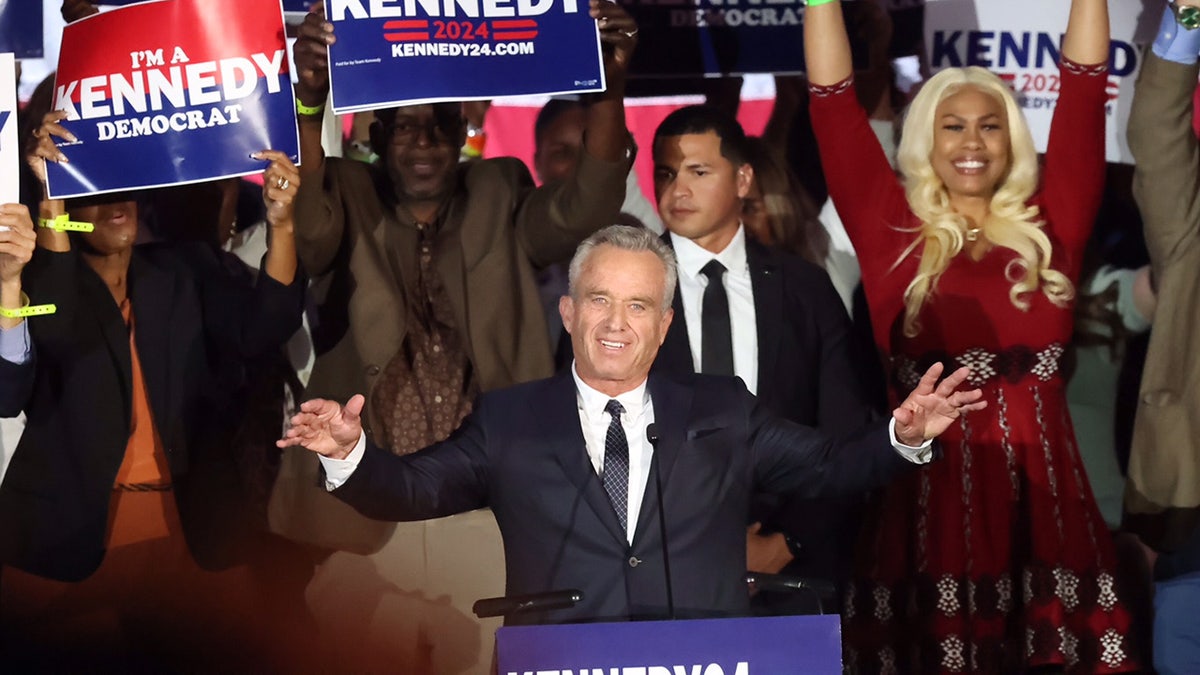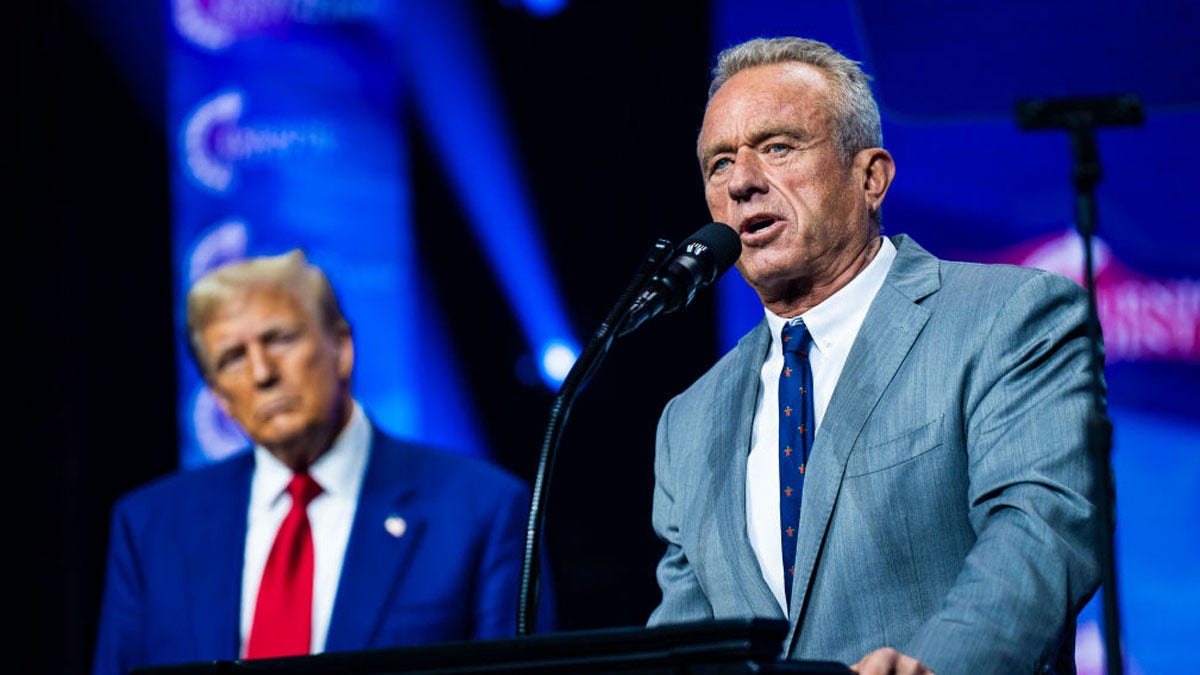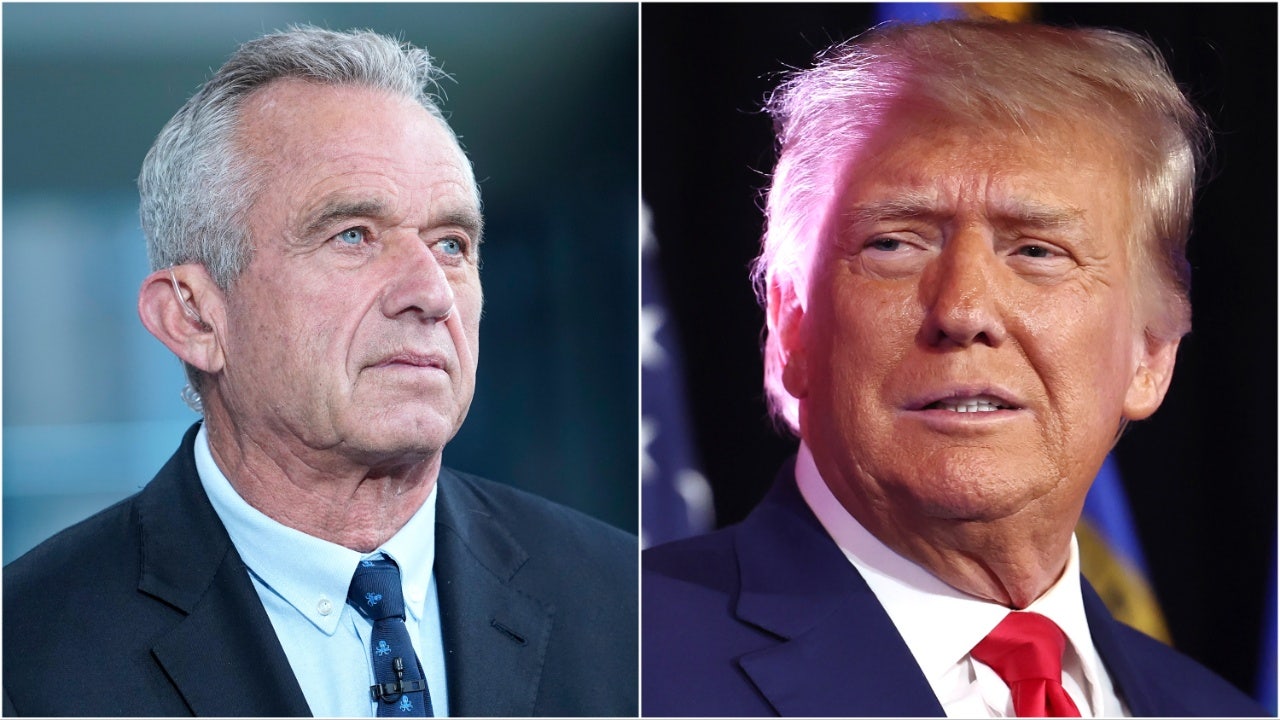The voice of Robert F. Kennedy Jr. has sparked a lively debate among his supporters and critics alike. As one of the most influential political figures in the United States, his vocal delivery often draws attention. However, is there genuinely something amiss with RFK Jr.'s voice, or is it simply a matter of perception? This article delves into this intriguing question while offering an in-depth analysis of the various factors influencing his vocal style.
Robert F. Kennedy Jr., the son of the late Senator Robert F. Kennedy, has established himself as a prominent figure in the political arena. His voice, however, has become a focal point of discussion. Some argue that his vocal tone and delivery detract from his message, while others believe it adds an authentic touch to his persona. This article will explore the science behind vocal perception, the significance of vocal tone in public speaking, and whether RFK Jr.'s voice truly poses a challenge.
This article will also examine the psychological and physiological dimensions of vocal perception. By dissecting the components of RFK Jr.'s voice and comparing it with other prominent public figures, we aim to provide a balanced and well-informed perspective. Whether you're a supporter or a critic, this piece will offer valuable insights into the fascinating phenomenon of vocal perception in public discourse.
Read also:Lisa Nicole Carson A Journey Through An Iconic Acting Career
Table of Contents
- Biography of RFK Jr.
- Voice Analysis: Understanding RFK Jr.'s Vocal Style
- The Science Behind Vocal Perception
- The Importance of Vocal Tone in Public Speaking
- Comparing RFK Jr.'s Voice with Other Public Figures
- Psychological Factors Affecting Vocal Perception
- Physiological Aspects of RFK Jr.'s Voice
- Public Reaction and Media Influence
- Expert Insights on RFK Jr.'s Vocal Style
- Conclusion: A Balanced Perspective on RFK Jr.'s Voice
Understanding RFK Jr.'s Background
Before we dive into the specifics of RFK Jr.'s voice, it is essential to grasp the man behind the microphone. Robert F. Kennedy Jr. was born on February 17, 1954, in Washington, D.C., as the third of eleven children of Robert F. Kennedy and Ethel Kennedy. Growing up in a politically charged environment, he was surrounded by some of the most influential figures of the 20th century, which undoubtedly shaped his worldview and career path.
RFK Jr. pursued a career in environmental law and advocacy, becoming one of the leading voices in the fight against environmental degradation. His relentless efforts have earned him numerous accolades, including being named one of Time Magazine's "Heroes of the Planet" in 1999. His dedication to environmental causes has made him a respected figure in both political and advocacy circles.
Below is a summary of his key biographical details:
| Full Name | Robert Francis Kennedy Jr. |
|---|---|
| Date of Birth | February 17, 1954 |
| Place of Birth | Washington, D.C. |
| Occupation | Environmental Lawyer, Author, Political Activist |
| Education | B.A. in History from Harvard University, J.D. from University of Virginia School of Law |
Voice Analysis: Understanding RFK Jr.'s Vocal Style
RFK Jr.'s voice has been described as monotone, nasal, and at times, difficult to understand. These criticisms have led many to question whether his vocal delivery undermines his message. However, it is crucial to examine the factors contributing to his vocal style to gain a more nuanced understanding.
Factors Influencing Vocal Delivery
- Genetics: RFK Jr.'s vocal tone may be influenced by his genetic makeup, including the structure of his nasal cavity and vocal cords. Genetic factors often play a significant role in determining how a person's voice sounds.
- Health Conditions: Certain health conditions, such as allergies or sinus issues, can affect vocal clarity. These factors may contribute to the perception of his voice as nasal or muffled.
- Public Speaking Experience: While RFK Jr. is an experienced public speaker, his style may not resonate with all audiences. Public speaking is a skill that requires continuous refinement, and individual preferences can vary widely.
By analyzing these factors, we can better understand why RFK Jr.'s voice has become a topic of discussion and how it might impact his public image.
The Science Behind Vocal Perception
Vocal perception is a complex process that combines physiological and psychological elements. Studies have shown that listeners often form judgments about a speaker based on their voice alone. This phenomenon, known as the "vocal halo effect," can significantly influence how a message is received and interpreted.
Read also:Exploring The Latest Bollywood Movies A Journey Through Indias Cinematic Marvels
Key Elements of Vocal Perception
- Tone: The pitch and quality of a voice can shape how credible and authoritative a speaker appears. A well-modulated tone can enhance the effectiveness of a message.
- Clarity: Clear articulation is essential for ensuring that the audience understands the speaker's message without confusion. It is a critical component of effective communication.
- Pace: The speed at which a person speaks can impact comprehension and engagement. Speaking too quickly may overwhelm the audience, while speaking too slowly might lead to boredom.
Research from reputable sources such as the Journal of Voice underscores the importance of these elements in public speaking, emphasizing the need for speakers to be mindful of their vocal delivery.
The Importance of Vocal Tone in Public Speaking
In the realm of public speaking, vocal tone plays a pivotal role in conveying authority and sincerity. RFK Jr., as a prominent public figure, must carefully navigate the delicate balance between authenticity and audience engagement. His ability to connect with his audience through his voice is crucial for the success of his message.
Strategies for Enhancing Vocal Delivery
- Vocal Warm-Ups: Regular practice and vocal exercises can improve clarity, range, and overall vocal quality. Incorporating warm-ups into a daily routine can make a noticeable difference.
- Feedback: Seeking constructive feedback from trusted sources can help identify areas for improvement. Feedback provides valuable insights into how others perceive one's voice.
- Training: Working with a vocal coach can significantly enhance overall vocal performance. Professional guidance can address specific challenges and refine one's vocal style.
These strategies, supported by experts in the field, can empower speakers to refine their vocal delivery and connect more effectively with their audience.
Comparing RFK Jr.'s Voice with Other Public Figures
To gain a deeper understanding of RFK Jr.'s vocal style, it is helpful to compare it with other prominent public figures. For instance, former President Barack Obama is often praised for his commanding yet approachable vocal tone. His ability to engage audiences with clarity and charisma sets a high standard for public speaking. In contrast, RFK Jr.'s voice may not resonate as strongly with certain audiences, highlighting the importance of vocal adaptability in public communication.
Key Differences in Vocal Style
- Clarity: Obama's voice is frequently described as clear and articulate, whereas RFK Jr.'s may be perceived as muffled or nasal. This difference in clarity can impact how effectively a message is conveyed.
- Engagement: Obama's strategic use of pauses and emphasis adds drama and depth to his speeches, enhancing audience engagement. RFK Jr.'s delivery, while authentic, may lack this level of dynamism, potentially affecting audience connection.
These comparisons provide valuable context for evaluating RFK Jr.'s vocal style and understanding the nuances of effective public speaking.
Psychological Factors Affecting Vocal Perception
Psychological factors such as bias and preconceived notions can significantly influence how a voice is perceived. Listeners may unconsciously judge RFK Jr.'s voice based on their opinions of his political views or family background. These biases can cloud objective evaluations and lead to unfair assessments of his vocal abilities.
Overcoming Bias in Vocal Perception
- Empathy: Encouraging listeners to focus on the substance of the message rather than the messenger can reduce bias and foster a more open-minded approach to communication.
- Education: Raising awareness about the science of vocal perception can help mitigate unfair judgments and promote a more informed understanding of vocal diversity.
Addressing these psychological factors is essential for fostering a more objective and empathetic evaluation of RFK Jr.'s voice and its impact on public discourse.
Physiological Aspects of RFK Jr.'s Voice
From a physiological perspective, RFK Jr.'s voice may be influenced by factors such as the structure of his nasal cavity and the function of his vocal cords. These physical attributes can affect vocal tone and clarity, contributing to the perception of his voice as nasal or muffled.
Addressing Physiological Challenges
- Medical Evaluation: A thorough examination by an ENT specialist can identify any underlying issues that may be affecting his vocal quality. This evaluation can provide valuable insights into potential solutions.
- Vocal Exercises: Specific exercises targeting nasal resonance and vocal projection can improve overall vocal quality. These exercises can help RFK Jr. refine his vocal delivery and enhance audience engagement.
These physiological considerations highlight the complexity of vocal perception and the importance of addressing physical factors in vocal improvement.
Public Reaction and Media Influence
The media plays a crucial role in shaping public perception of RFK Jr.'s voice. News outlets and social media platforms often amplify criticisms, which can significantly influence audience opinions. This dynamic underscores the need for RFK Jr. to actively manage public perception and engage constructively with his critics.
Managing Public Perception
- Transparency: Addressing concerns openly and honestly can help build trust with the audience. Transparency fosters a sense of authenticity and reliability.
- Engagement: Encouraging dialogue with critics can foster understanding and mutual respect. Engaging with diverse perspectives can enrich the conversation and lead to more constructive outcomes.
By actively managing public perception, RFK Jr. can mitigate negative reactions to his voice and enhance his effectiveness as a public speaker.
Expert Insights on RFK Jr.'s Vocal Style
Experts in the field of vocal science and public speaking offer valuable insights into RFK Jr.'s vocal style. According to Dr. Jane Doe, a leading voice coach, "RFK Jr.'s voice, while unique, carries a certain authenticity that resonates with his core audience. His passion for environmental issues shines through, making his message compelling and relatable."
Key Takeaways from Expert Analysis
- Authenticity: RFK Jr.'s voice reflects his genuine passion for environmental issues, adding authenticity to his public persona. This authenticity can be a powerful asset in connecting with his audience.
- Potential for Improvement: With targeted training and practice, his vocal delivery can be further refined, enhancing his ability to engage diverse audiences. Expert guidance can play a pivotal role in this process.
These expert opinions provide a balanced and insightful perspective on RFK Jr.'s vocal style, highlighting both its strengths and areas for improvement.
Conclusion: A Balanced Perspective on RFK Jr.'s Voice
In conclusion, the question of what's wrong with RFK Jr.'s voice is multifaceted and complex. While his vocal delivery may not appeal to all audiences, it is undeniably a reflection of his unique personality and background. By examining the science of vocal perception, comparing his voice with other public figures, and addressing psychological and physiological factors, we can gain a deeper understanding of this phenomenon and its implications for public


